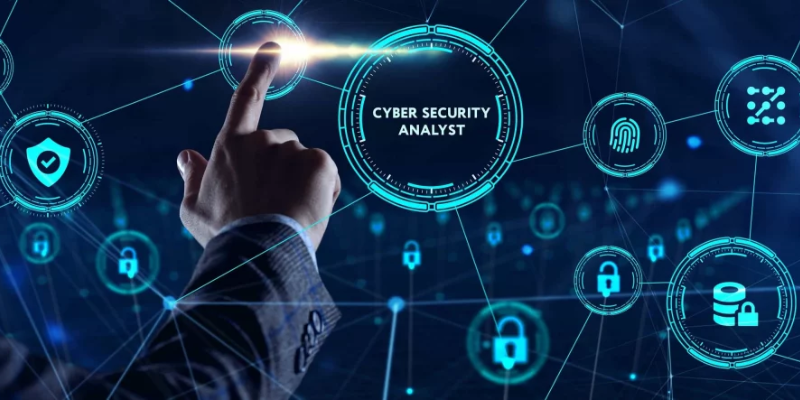In today’s digital world, securing data is no longer optional—it’s essential. With the increasing number of cyber threats, the demand for cybersecurity professionals has skyrocketed. If you’ve ever wondered how to become a cyber security analyst, you’re not alone. This career path offers exciting challenges, great salary potential, and the chance to make a real difference in the digital realm.
Whether you’re switching careers or just starting out, enrolling in a Cyber Security Course in Chennai is a smart move. A solid foundation, combined with hands-on experience, can put you on the fast track to a fulfilling cybersecurity career.
What Does a Cybersecurity Analyst Do?
A cyber security analyst is responsible for protecting an organization’s computer systems and networks. Their job is to detect, prevent, and respond to cyber threats. This includes monitoring networks, analyzing data, identifying vulnerabilities, and implementing security measures.
They often work with IT teams to update security systems, respond to security breaches, and create disaster recovery plans. In short, cybersecurity analysts are digital guardians ensuring that confidential data stays out of the hands of cybercriminals.
Step-by-Step Guide: How to Become a Cyber Security Analyst
1. Understand the Basics
Start by learning the Principles of Cyber Security—things like confidentiality, integrity, availability, risk management, and authentication. Understanding how information is protected helps you build a strong base.
2. Get the Right Education
While some roles require a degree in computer science, others accept candidates with certifications or bootcamp training. The key is acquiring knowledge in:
- Network fundamentals
- Operating systems (Linux, Windows)
- Cyber laws and compliance
- Security protocols
Courses like CEH (Certified Ethical Hacker), CompTIA Security+, and CISSP are widely recognized.
3. Develop Practical Skills
Reading theory isn’t enough. Practice ethical hacking, simulate attacks in virtual labs, and use tools like Wireshark, Metasploit, or Nmap. Platforms like TryHackMe and Hack The Box are great for hands-on experience.
Also, understanding web application development helps. In fact, having some front-end experience through programs like a React JS Training in Chennai can give you insights into security vulnerabilities such as XSS or SQL injection.
4. Get Certified
Certifications are important to validate your knowledge. Consider:
- CompTIA Security+
- Certified Information Systems Security Professional (CISSP)
- Certified Ethical Hacker (CEH)
- GIAC Security Essentials (GSEC)
5. Build a Portfolio and Network
Work on small projects, contribute to open-source security tools, or start a blog. Join online communities, attend cybersecurity webinars, and connect with professionals on LinkedIn.
6. Start with Entry-Level Roles
Before you become a full-fledged cybersecurity analyst, begin with roles like:
- IT support specialist
- Network administrator
- Security operations center (SOC) analyst
These positions provide practical experience and make transitioning into analyst roles smoother.
7. Never Stop Learning
Cybersecurity is an ever-evolving field. New threats emerge daily, so staying updated is critical. Following cybersecurity news, joining online forums, and continuous training are must-haves for long-term success.
Why Is Cyber Security So Popular?
So, why is Cyber Security so Popular? One word: necessity. With data breaches costing companies millions and affecting user trust, organisations can no longer afford to be lax.
Moreover, governments and businesses are enforcing stricter data protection laws. This has pushed cybersecurity to the forefront of every industry—healthcare, banking, e-commerce, and even education. As a result, there’s a growing need for skilled analysts who understand the threats and know how to counteract them.
This demand creates a wealth of opportunities for anyone interested in tech, security, or digital law. The career also offers job security, competitive pay, and growth potential.
Cybersecurity and Its Challenges
No field is without challenges, and cyber security and its challenges are many. Analysts face issues like:
- Constantly evolving malware
- Sophisticated phishing attacks
- Insider threats
- Lack of awareness among users
Additionally, maintaining the balance between usability and security is difficult. Locking down a system too tightly can hinder productivity. Being too lenient can lead to vulnerabilities. This is where trained professionals make a real impact.
Learning to tackle these challenges starts with understanding the root of the problem and gaining real-world experience—something offered in a quality Corporate Training in Chennai program.
Advantages of Cyber Security as a Career
There are several Advantages of Cyber Security when it comes to choosing it as a career:
- High demand: Every company needs security experts.
- Job security: With threats growing, the need for analysts is consistent.
- Lucrative pay: Average salaries are above industry standards.
- Growth opportunities: Climb from analyst roles to CISO (Chief Information Security Officer).
- Remote work potential: Many roles can be performed from anywhere.
Plus, you’re making a difference. You’re the digital hero who keeps data safe.
Becoming a cybersecurity analyst isn’t just about landing a job—it’s about joining a mission to protect the digital world. It takes curiosity, persistence, and the willingness to learn continuously. But the rewards, both personal and professional, are absolutely worth it.
If you’re ready to take the leap, consider enrolling in a reputed Training Institute in Chennai that offers comprehensive learning paths. Whether it’s a beginner’s crash course or an advanced certification program, formal training ensures you’re not just job-ready—but future-ready too.
